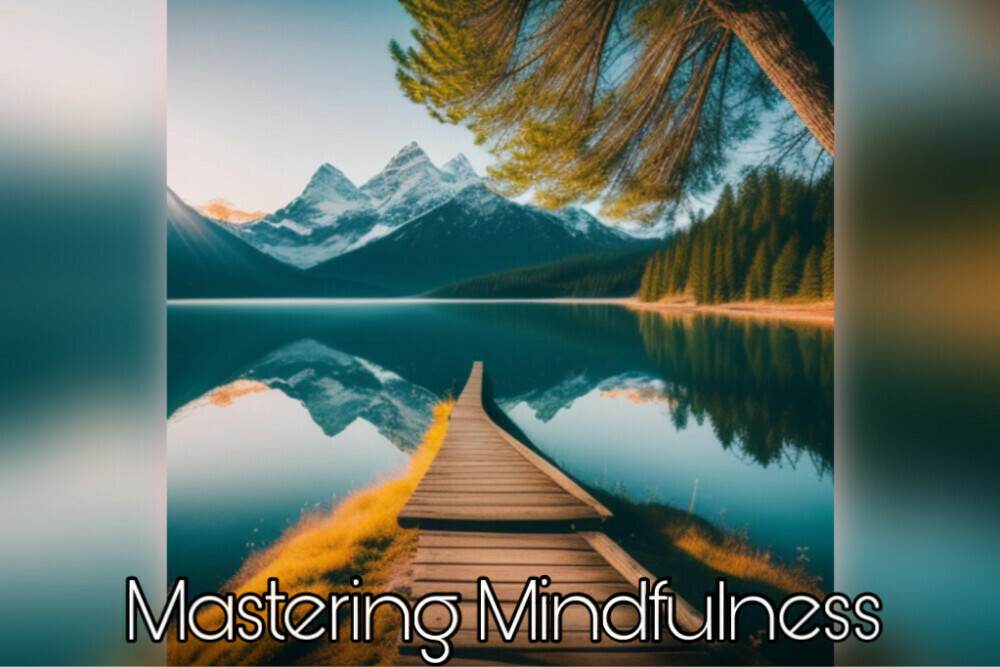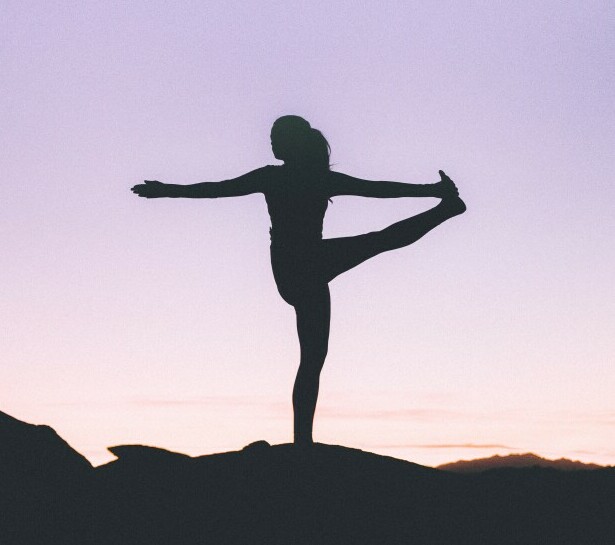- Mastering Mindfulness: Tactics for Stress Reduction with Mindfulness Techniques
In the relentless hustle of our modern lives, stress has become an unwelcome companion for many. Amid the chaos, there exists a powerful antidote – mindfulness. This article delves into the profound realm of mastering mindfulness, unraveling the tactics that make it a cornerstone in stress reduction. Let’s embark on a journey to understand, embrace, and wield the transformative power of mindfulness in our everyday lives.
Embracing the Power of Mindfulness for Stress Reduction

Understanding Mindfulness as a Mental State
At its core, mindfulness is a mental state characterized by being fully present and engaged in the current moment. It transcends the buzz of thoughts about the past or future, anchoring us in the now. In the context of stress reduction, mindfulness acts as a sanctuary from the pressures of an ever-accelerating world.
Exploring the Connection Between Mindfulness and Stress Reduction
Scientifically, mindfulness induces changes in the brain associated with stress resilience. By fostering awareness and acceptance, it transforms our relationship with stressors. Instead of being overwhelmed, we learn to respond with clarity and composure.
Highlighting the Need for Mastering Mindfulness
In our fast-paced world, the need for mastering mindfulness has never been more pronounced. The constant barrage of stimuli and obligations can leave us perpetually on edge. However, by cultivating mindfulness, we gain a formidable tool to navigate this chaos.
Unlocking Stress Relief: Practical Mindfulness Techniques

Detailing Mindfulness Techniques
1. Body Scan: This technique involves directing focused attention to different parts of the body, gradually releasing tension. It’s a powerful method to reconnect with the physical self and alleviate stress stored in the body.
2. Mindful Breathing: A cornerstone of mindfulness, conscious breathing anchors us to the present. By focusing on each breath, we create a space of calm amidst the storm of daily life.
3. Mindful Observation: Observing thoughts and feelings without judgment allows us to detach from stressors. This technique empowers us to respond thoughtfully rather than react impulsively.
Enhance your mindfulness journey with guided sessions using apps like Headspace or Yours, providing a structured approach to these techniques.
Application of Mindfulness Techniques in Daily Life
From the boardroom to the living room, mindfulness is a versatile ally. Whether it’s a brief breathing exercise during a hectic workday or a mindful observation practice before bed, integrating these techniques into daily life is key to sustained stress reduction.
>>> You Might Also Like: Creating Healthy Boundaries
Success Stories of Stress Reduction Through Mindfulness
Real-life stories serve as beacons of inspiration. Meet Sarah, a professional navigating the demands of a high-pressure job. Through consistent mindfulness practice, she transformed stress into a catalyst for growth. These narratives highlight that mastering mindfulness is not an abstract concept but a tangible and transformative journey.
Expert Perspectives on Mindfulness Effectiveness
To fortify the credibility of mindfulness in stress management, let’s turn to experts. Dr. Emily Turner, a renowned psychologist, emphasizes, “Mindfulness is not just about relaxation; it’s about building resilience. It equips individuals with the mental tools to navigate stressors with grace.”
Consolidating Your Practice: Strategies for Mastering Mindfulness

Approaching Mindfulness Practice as a Continual Learning Process
Mastering mindfulness is not a destination; it’s an ongoing journey. Embrace each moment of practice as an opportunity for growth. Understand that, like any skill, mindfulness deepens with consistent effort.
Strategies for Consistency in Mindfulness Practice
Life’s demands can make consistency challenging. However, establishing a routine, integrating mindfulness into existing habits, and leveraging technology for guided practices can enhance consistency. Consistency, in turn, magnifies the benefits of mindfulness.
Enhance your practice with tools like a mindfulness journal, a meditation headband like Muse 2, and consider incorporating a weighted blanket into your relaxation routine for a comforting and grounding experience.
Addressing Common Obstacles in Mastering Mindfulness
Acknowledging common obstacles, such as restlessness or difficulty quieting the mind, is integral to progress. Overcoming these challenges requires patience and self-compassion. Remember, the essence of mindfulness is not perfection but presence.
Resources for Guided Mindfulness Practices and Further Learning
For those embarking on the mindfulness journey, a wealth of resources exists. From mobile apps offering guided sessions to reputable books and online courses, the avenues for deepening your understanding and practice are vast.
Lastly…
In conclusion, mastering mindfulness is a powerful venture into self-discovery and stress reduction. By embracing the present moment through mindfulness techniques, we not only navigate the challenges of our hectic lives but also transform our relationship with stress. Remember, the journey of mastering mindfulness is personal and ongoing. As you integrate these practices into your life, may you find solace, resilience, and a profound sense of well-being.
I enjoyed the article a mindfulness and techniques to combat stress. Never did I ever consider focusing on breathing as a mechanism for focus. This article has changed that. The statement about relaxation being tool for building resilience, by Dr Turner has made me think about how I may employ these practices in my life. Thank you for this content.
Michael
Thank you for taking the time to read it and provide an opinion on it. Glad it was helpful!
I enjoyed reading your article. Mindfulness is very fascinating and interesting topic for me. It hugely leads to improved well-being and stress relief. I like to do yoga alongside meditation and I can say they are game changing my life. It is not like “ok I do mindfulness a few days” or a “I participate in a course and I’m done”, No it is a life itself .It’s really worth trying and living with day to day. Thank you
I completely agree with you. It needs to be constant. As long as you find a way towards mindfulness, it doesn’t really matter how you get there, only that you keep practicing it and enjoying the journey it brings.
Hi Stephanie
A very brilliant article. Full of empowering information. And I must say very very practical. Actually as I was reading your article when I came to Body Scan and Mindful Breathing I stopped reading and put both into practice. “What a Stress Reliver !!” These tactics really work. These must be used by doctors and psychologist to help a multitudes of us who are carrying a lot of stress as a result of what is going on around the world today.
Thank you for sharing this mindfulness information
Richard
Hello Richard,
Thank you so much for your kind words! I’m thrilled to hear that you found the article empowering and that you took a moment to put the Body Scan and Mindful Breathing into practice. It’s wonderful that you experienced the stress-relieving benefits firsthand. Your suggestion about these techniques being used by professionals is spot-on—they indeed have the potential to benefit many. If you ever have more experiences or insights to share, I’d love to hear them. Wishing you continued moments of peace and well-being!
This is a very good post, thank you for sharing it. I wasn’t aware of the actual meaning behind mindfulness before reading this. I often wondered why some people react to different situations and stresses differently, this article has made that a lot clearer. I really like the 3 techniques you have here and will try these myself. I have known some people who would have benefitted from this kind of information, it will no doubt help a number of people struggling with stress and anxiety!!
Thank you so much for your thoughtful comment! I’m delighted to hear that the post provided clarity on the meaning of mindfulness and its impact on reactions to stress. It’s always rewarding to know that the techniques shared are resonating with readers like you. I hope these mindfulness techniques bring positive changes to your life, and if you ever have questions or insights to share, feel free to reach out. Wishing you a journey filled with calm and well-being!
Hey, I just checked out this piece on managing stress with mindfulness, and it hit home. The tips felt less like textbook advice and more like a friend sharing what actually works.
Tried a couple of the techniques, and damn, there’s something about them that just clicks. If you’re in the stress-relief game, this read might just be the down-to-earth guide you didn’t know you needed.
Thank you for taking the time to read this piece and provide your outcome when trying the techniques. I hope they continue helping you along the way.
Hello! This article on mastering mindfulness is so refreshing!
The practical mindfulness techniques like Body Scan and Mindful Breathing, coupled with real life success stories and expert perspectives, is very interesting.
Have you tried any mindfulness techniques mentioned here, or do you have your own favorite methods for stress reduction? I would love to have your personal experience on that!
Thanks in advance!
My personal experience has been provided throughout this article. I do have some of my own personal techniques, but those are solely based on what makes me feel better. This guide is basically universal. Really hope you can put those mindfulness techniques to good use and get the best out of them. Thanks for stopping by!
Hi Stephanie,
I just read your piece on “Mastering Mindfulness: Tactics for Stress Reduction.” It’s a solid read, blending theory with practical techniques like body scans and mindful breathing. Your approach of making mindfulness accessible and applicable to daily life really stands out. However, I’m curious about how these techniques fare in high-stress environments, like a chaotic workplace or during a personal crisis. Can they provide immediate relief in such intense situations, or are they more about building long-term resilience?
Thank you for your work and sharing.
Best regards,
Makhsud
Hi there!
Thank you for taking the time to read this piece; I’m glad you found it useful and enjoyed the ride. As for your question, it all depends. We all deal with stress in different intensities. Very high stress levels may lean-in hard when it comes to mindfulness. You can always try it, just don’t get overwhelmed if it doesn’t work for that specific situation.